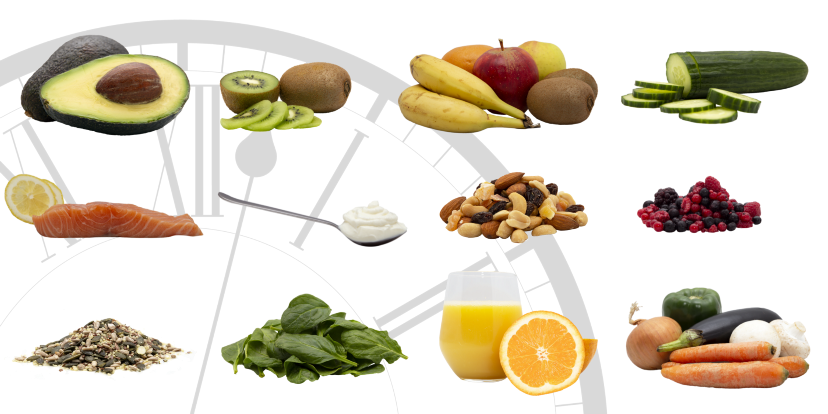I recently finished reading neurologist Dr. David Perlmutter’s book “Brain Maker,” in which he states that everything about our health, how we feel emotionally and physically, depends on the state of our microbiome (the vast population of organisms that live in our body, basically the insects in our gut).
He says that our microbiome is the ultimate creator of the brain and that the bugs in our gut are just as vital to our health as our heart, lungs, liver, and brain.
To dig a little deeper, it traces each type of disease back to inflammation (for example, diabetes, cancer, coronary heart disease, Alzheimer’s disease, depression, Parkinson’s disease, multiple sclerosis, obesity, dementia, etc.). Our immune system controls inflammation and the microbiome regulates the immune response.
Eating for Optimal Brain Health
Before we get into the 50 specific foods, here are a few principles Dr. Perlmutter recommends we live by:
Choose organic, grass-fed meat, wild-caught fish, high-quality fats, and foods free of toxic ingredients and antibiotics.
A diet rich in fiber-rich sources of whole fruits and vegetables feeds good gut bacteria.
Your main entree should be mostly fibrous fruits and vegetables, with protein on the side. The ideal plate is a sizeable serving of vegetables (2/3 of your plate) and about 3-4 ounces of protein.
Brain-Maker Foods
Vegetables
- Leafy greens and lettuces
- Spinach
- Broccoli
- Kale
- Mushrooms
- Cauliflower
- Brussel Sprouts
- Green Beans
- Radishes
- Jicama
Low Sugar Fruit
11. Avocado
12. Bell peppers
13. Cucumber
14. Tomato
15. Zucchini
16. Squash
17. Eggplant
18. Berries
Fermented foods / Probiotics (eat at least 1 fermented food daily)
19. Live-cultured yogurt
20. Kefir
21. Kombucha Tea
22. Kimchi
23. Sauerkraut
24. Pickles (must be pickled in brine, not vinegar)
25. Picked fruit and vegetables (e.g. carrot sticks)
Healthy fat
26. Extra-virgin olive oil
27. Coconut oil
28. Organic or pasture-fed butter
29. Almond milk
30. Olives
31. Nuts and nut butters
32. Cheese (except for blue cheeses)
33. Seeds (flaxseed, sunflower seeds, pumpkin seeds, sesame seeds, chia seeds)
Protein
34. Whole eggs
35. Wild fish (salmon, black cod, mahimahi, grouper, herring, trout, sardines)
36. Shellfish and mollusks (shrimp, crab, lobster, mussels, clams, oysters)
37. Grass-fed meat, fowl, poultry, and pork (beef, lamb, liver, bison, chicken, turkey, duck)
Herbs, seasonings, and condiments
38. Mustard
39. Horseradish
40. Salsa
41. Herbs and seasonings
Nature’s healthy indulgences
42. Coffee (2–5 cups daily)
43. Wine (1 glass per day for women, 1–2 glasses for men)
44. Dark chocolate (no more than 2–3 squares per day)
45. Tea
Prebiotics (12 grams daily)
46. Raw Jerusalem artichoke
47. Raw garlic
48. Raw leek
49. Raw or cooked onion
50. Raw asparagus
And one more “drink” for good measure
51. Filtered water (chlorine-free)
If you’re interested in the role of the gut in determining the health of your brain, I highly recommend reading “Brain Maker.” Dr. Perlmutter goes much deeper into the science behind this phenomenon, as well as how the microbiome can be damaged throughout life and the specific types of foods to avoid. But I hope this “cheat sheet” clarifies how to eat to protect and preserve your brain.









